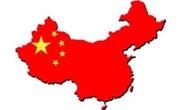Government/Policy

June 11, 2017
China Questions Legitimacy of EU Duties on Hot Rolled Steel
Written by Sandy Williams
China strongly condemned new antidumping and countervailing duties imposed Friday by the European Union on imports of hot-rolled flat steel from China. The EC applied definitive AD/CVD duties of up to 35.9 percent.
Commerce ministry official Wang Hejun said in a statement on Friday, “The European Commission ignores the fact that China’s steel exports to Europe clearly declined in 2016, using China’s steel overcapacity as an excuse to claim that China’s hot-rolled flat steel products threaten to damage industry in the EU when that is mere speculation with little bearing on reality.
“China strongly questions the legitimacy and legality of the European Commission’s ruling,” added Wang.
He argued that state-owned Chinese banks are independent market entities and that the EC continues to mistake bank loans as preferential lending. “It even disregarded basic financial facts by mistaking some bank loans directly as bestowal, inflating the subsidy range and seriously infringing the rights of Chinese companies,” he said.
Wang contended that not only does China not subsidize steel exports, it has taken steps to reduce them. “It is biased and unfair for Europe to blame China for its own industrial issues,” he said. “Unjustified accusations and reckless trade rescue measures will not help to solve the problem.”
EU Trade Commissioner Cecilia Malmstroem said the Commission is trying to “level the playing field” and protect European steelmakers from the flood of exports from China. “We are continuing to act, when necessary, against unfair trading conditions in the steel sector, and against foreign dumping,” Malmstroem said in a statement.







